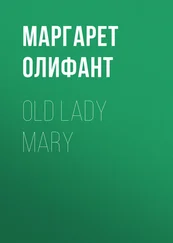Маргарет Олифант - Brownlows
Здесь есть возможность читать онлайн «Маргарет Олифант - Brownlows» — ознакомительный отрывок электронной книги совершенно бесплатно, а после прочтения отрывка купить полную версию. В некоторых случаях можно слушать аудио, скачать через торрент в формате fb2 и присутствует краткое содержание. Жанр: foreign_prose, literature_19, foreign_antique, на английском языке. Описание произведения, (предисловие) а так же отзывы посетителей доступны на портале библиотеки ЛибКат.
- Название:Brownlows
- Автор:
- Жанр:
- Год:неизвестен
- ISBN:нет данных
- Рейтинг книги:5 / 5. Голосов: 1
-
Избранное:Добавить в избранное
- Отзывы:
-
Ваша оценка:
- 100
- 1
- 2
- 3
- 4
- 5
Brownlows: краткое содержание, описание и аннотация
Предлагаем к чтению аннотацию, описание, краткое содержание или предисловие (зависит от того, что написал сам автор книги «Brownlows»). Если вы не нашли необходимую информацию о книге — напишите в комментариях, мы постараемся отыскать её.
Brownlows — читать онлайн ознакомительный отрывок
Ниже представлен текст книги, разбитый по страницам. Система сохранения места последней прочитанной страницы, позволяет с удобством читать онлайн бесплатно книгу «Brownlows», без необходимости каждый раз заново искать на чём Вы остановились. Поставьте закладку, и сможете в любой момент перейти на страницу, на которой закончили чтение.
Интервал:
Закладка:
“Do I?” said Sara. “I am very glad you are pleased, grandmamma. I put on my very best to please you. Do you remember the little cape you made for me, when I was a tiny baby, out of your great old muff? I have got it still. But oh, listen to that daphne how it tells it is here! It is all through the room, as I said it would be. I must ring for some water, and your people, when they come to call, will never say the daphne is not real. It will contradict them to their face. Please, Nancy, some water for the flowers.”
“Thomas says it’s time for you to be a-going, Miss,” said Nancy, grimly.
“Oh, Thomas can say what he pleases; papa will wait for me,” cried Sara; “and grandmamma and I are such friends this time. There is some cream in the basket, Nancy, for tea; for you know our country cream is the best; and some of the grapes of my pet vine; don’t look sulky, there’s an old dear. I am coming every week. And grandmamma and I are such friends—”
“Anyhow, she’s my poor Bessie’s own child,” said Mrs. Fennell, with a little deprecation; for Nancy, who had been old Mrs. Thomson’s servant, was stronger even than herself upon the presumption of Brownlows, and how, but for them as was dead and gone and forgotten, such splendor could never have been.
“Sure enough,” said Nancy, “and more people’s child as well,” which was the sole but pregnant comment she permitted herself to make. Sara, however, got her will, as she usually did. She took off her warm cloak, which the two old women examined curiously, and scorned Thomas’s recommendations, and made and shared her grandmother’s tea, while the grays drove up and down the narrow street, dazzling the entire neighborhood, and driving the coachman desperate. Mr. Brownlow, too, sat waiting and wondering in his office, thinking weakly that every cab that passed must be Sara’s carriage. The young lady did not hurry herself. “It was to please grandmamma,” as she said; certainly it was not to please herself, for there could not be much pleasure for Sara in the society of those two old women, who were not sweet-tempered, and who were quite as like, according to the mood they might happen to be in, to take the presents for insults as for tokens of love. But, then, there was always a pleasure in having her own way, and one of which Sara was keenly susceptible. When she called for her father eventually, she complained to him that her head ached a little, and that she felt very tired. “The daphne got to be a little overpowering in grandmamma’s small room,” she said; “I dare say they would put it out of window as soon as I was gone; and, besides, it is a little tiring, to tell the truth. But grandmamma was quite pleased,” said the disinterested girl. And John Brownlow took great care of his Sara as they drove out together, and felt his heart grow lighter in his breast when she recovered from her momentary languor, and looked up at the frosty twinkling in the skies above, and chattered and laughed as the carriage rolled along, lighting up the road with its two lamps, and dispersing the silence with a brisk commotion. He was prouder of his child than if she had been his bride—more happy in the possession of her than a young man with his love. And yet John Brownlow was becoming an old man, and had not been without cares and uncomfortable suggestions even on that very day.
CHAPTER III.
A SUDDEN ALARM
The unpleasant suggestion which had been brought before Mr. Brownlow’s mind that day, while Sara accomplished her visit to her grandmother, came after this wise:
His mind had been going leisurely over his affairs in general, as he went down to his office; for naturally, now that he was so rich, he had many affairs of his own beside that placid attention to other people’s affairs which was his actual trade; and it had occurred to him that at one point there was a weakness in his armor. One of his investments had not been so skillful or so prudent as the rest, and it looked as if it might call for farther and farther outlay before it could be made profitable, if indeed it were ever made profitable. When he got to the office, Mr. Brownlow, like a prudent man, looked into the papers connected with this affair, and took pains to understand exactly how he stood, and what farther claims might be made upon him. And while he was doing this, certain questions of date arose which set clearly before him, what he had for the moment forgotten, that the time of his responsibility to Phœbe Thomson was nearly over, and that in a year no claim could be made against him for Mrs. Thomson’s fifty thousand pounds. The mere realization of this fact gave him a certain thrill of uncertainty and agitation. He had not troubled himself about it for years, and during that time he had felt perfectly safe and comfortable in his possessions; but to look upon it in actual black and white, and to see how near he was to complete freedom, gave him a sudden sense of his present risk, such as he had never felt before. To repay the fifty thousand pounds would have been no such difficult matter, for Mrs. Thomson’s money had been lucky money, and had, as we have said, doubled and trebled itself; but there was interest for five-and-twenty years to be reckoned; and there was no telling what other claims the heir, if an heir should turn up, might bring against the old woman’s executor. Mr. Brownlow felt for one sharp moment as if Sara’s splendor and her happiness was at the power of some unknown vagabond who might make a sudden claim any moment when he was unprepared upon the inheritance which for all these years had appeared to him as his own. It was a sort of danger which could not be guarded against, but rather, indeed, ought to be invited; though it would be hard—no doubt it would be hard, after all this interval—to give up the fortune which he had accepted with reluctance, and which had cost him, as he felt, a hundred times more trouble than it had ever given him pleasure. Now that he had begun to get a little good out of it, to think of some stealthy vagrant coming in and calling suddenly for his rights, and laying claim perhaps to all the increase which Mr. Brownlow’s careful management had made of the original, was an irritating idea. He tried to put it away, and perhaps he might have been successful in banishing it from his mind but for another circumstance that fixed it there, and gave, as it seemed, consistency and force to the thought.
The height of the day was over, and the sun was veering toward that point of the compass from which its rays shone in at John Brownlow’s windows, when he was asked if he would see a young man who came about the junior clerk’s place. Mr. Brownlow had very nearly made up his mind as to who should fill this junior clerk’s place; but he was kind-hearted, and sent no one disconsolate away if it were possible to help it. After a moment’s hesitation, he gave orders for the admission of this young man. “If he does not do for that, he may be good for something else,” was what John Brownlow said; for it was one of his crotchets, that to help men to work was better than almsgiving. The young man in question had nothing very remarkable in his appearance. He had a frank, straightforward, simple sort of air, which partly, perhaps, arose from the great defect in his face—the projection of the upper jaw, which was well garnished with large white teeth. He had, however, merry eyes, of the kind that smile without knowing it whenever they accost another countenance; but his other features were all homely—expressive, but not remarkable. He came in modestly, but he was not afraid; and he stood respectfully and listened to Mr. Brownlow, but there was no servility in his attitude. He had come about the clerk’s place, and he was quite ready to give an account of himself. His father had been a non-commissioned officer, but was dead; and his mother wanted his help badly enough.
Читать дальшеИнтервал:
Закладка:
Похожие книги на «Brownlows»
Представляем Вашему вниманию похожие книги на «Brownlows» списком для выбора. Мы отобрали схожую по названию и смыслу литературу в надежде предоставить читателям больше вариантов отыскать новые, интересные, ещё непрочитанные произведения.
Обсуждение, отзывы о книге «Brownlows» и просто собственные мнения читателей. Оставьте ваши комментарии, напишите, что Вы думаете о произведении, его смысле или главных героях. Укажите что конкретно понравилось, а что нет, и почему Вы так считаете.












